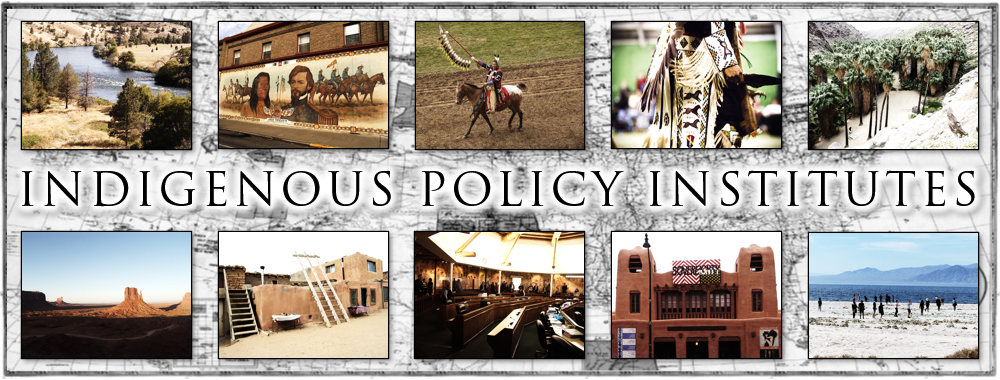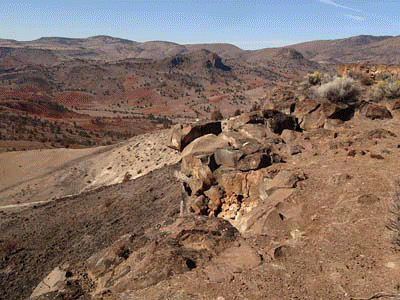
Concepts and Aims
Experiential Learning as Central Methodology
The Indigenous Policy Summer Institutes allow us to provide graduate students with a multi-dimensional, both theoretical and applied, outlook for their field of study and their future occupation, moving beyond traditional classroom instruction. The institutes are conceived to address a variety of key learning objectives that are elaborated in the following.
The institute started out as a student activity with faculty guidance. The organizers have striven to maintain this character. Therein, the institute follows a methodology that is strongly focused on experiential learning. The classroom seminars are aimed at preparing participating students for the experiences of the institute week. Students are also encouraged to conduct their own research, partially in a collaborative way, which will then cumulate into the final conference presentations.
The field trip portion specifically provides students with a hands-on perspective to otherwise rather theoretical classroom discussions. Traveling (whether at home or abroad) to key locations relevant to the institute topic and meeting with practitioners in their respective fields highlight the potential practical applications of knowledge gained through classroom discussions and readings, and may provide critical reevaluations of theoretical insights. By integrating practical components into the institute week, we are also offering an outlook on future career opportunities and internships (in diplomacy, politics, consulting, cultural work, etc.).
A further component of the summer institute will be a service learning component. We will work together with the respective indigenous community in identifying a policy issue which our students would collaboratively work to solve within the seminar period and during the field school. Preliminary results will be presented at the field school, and we will follow up with a final written report till the end of the year.
Travel within the institutes allows students to visit and engage with different cultures by meeting with international students and faculty. Ideally, such meetings with also provide them with a different and more critical perspective towards their own culture and background.
By taking responsibility for organizing the Summer Institutes, those students who have been chosen as student organizers can translate their previous experiences as program participants into guiding a new cohort of student participants throughout the process. This model of student leadership ties in with the experiential learning methodology of the institute. Faculty - whose role is the long-term maintenance, financing, and academic preparation of the program - guide the student organizers, but also allow them to find their own solutions to particular problems. Student organizers may also play a role during the classroom phase of the program by leading student discussions and guiding peer review of student research.
Both in the preparatory phase and throughout the institute week, academic faculty engage in team-teaching and in expanding their own disciplinary boundaries by allowing for an inter- and trans-disciplinary exchange of ideas and methods.
Furthermore, opening up an experiential space for the student organizers and the students requires faculty to shift their roles from active teaching to facilitating experiential learning. As a result, this may allow for innovative approaches to both teaching and learning.
Central Objectives of the Program
The program builds on the following central components: (1) cross-cultural and international approach, (2) inter-disciplinarity, (3) collegiality and collaborative learning, (4) diversity, (5) student scholarship and research, and (6) student leadership.
(1) Cross-Cultural and International Approach
A central aim of the institutes lies in providing the students with an experience that offers them a more international and/or cross-cultural outlook. This encompasses both the bringing together of students countries, if possible, and by situating the field school within an Indian Reservation during the institute week. As a result, domestic perspectives are confronted with international and cross-cultural counter-narratives that provide students with an alternative way of positioning themselves within an increasingly global world - and with understanding the specific legal and cultural framework of national sovereignty of most indigenous communities within North America.
(2) Interdisciplinarity
The institutes aim to unite different theoretical and practical approaches from different academic cultures in order to discuss a topic of contemporary relevance. This is achieved by the collaboration of different academic departments in setting up both the preparatory coursework and the field trips. Confronting the students with differing methodologies allows them to put their own respective fields in a specific research context, and to see interconnections, similarities and differences to other, equally valid, academic approaches to issues of cultural and public policy.
(3) Collegiality and Collaborative Learning
Throughout both the preparatory and the field trip portion of the Summer Institutes, students are both encouraged and required to work closely together. The aim is to create a productive group dynamics as a prerequisite for a working cultural exchange, with an added emphasis on the collaborative nature of academic learning.
(4) Diversity
In recruiting students for the Summer Institutes, we have been putting increasing emphasis on diversifying the composition of both the student and faculty group. Our aim therein is both the inclusion of students from traditionally disadvantaged parts of the population, and the decentering of the normative national discourse by the inclusion of minority voices.
(5) Student Scholarship and Research
The final institute conference is a student-run forum which allows the students to share their scholarship with their fellow students, faculty and interested guests. The presentations are based on their own research conducted throughout the preparatory seminars.
(6) Student Leadership
Since the beginning, one central component of the institutes has been to encourage student leadership. While the long-term and recurrent parts of the organization - such as finances, teaching, and establishing and maintaining contact with academic partner institutions - have been conducted by faculty, students have been playing an active part in the organization of central components of the program.
(7) Service Learning (Optional Component)
The service learning component of the field school relates theories of policy, society and culture directly to practice by serving the needs of a specific community. Furthermore, by directly aiming to serve community needs and looking for applicability, we also intend to answer to actual needs of the indigenous communities we visit, rather than to follow the model of disinterested research. Ideally, this also means that, following Linda Tuhiwai Smith, we will contribute to the decolonization of academic methodologies themselves.
back to: The Program

